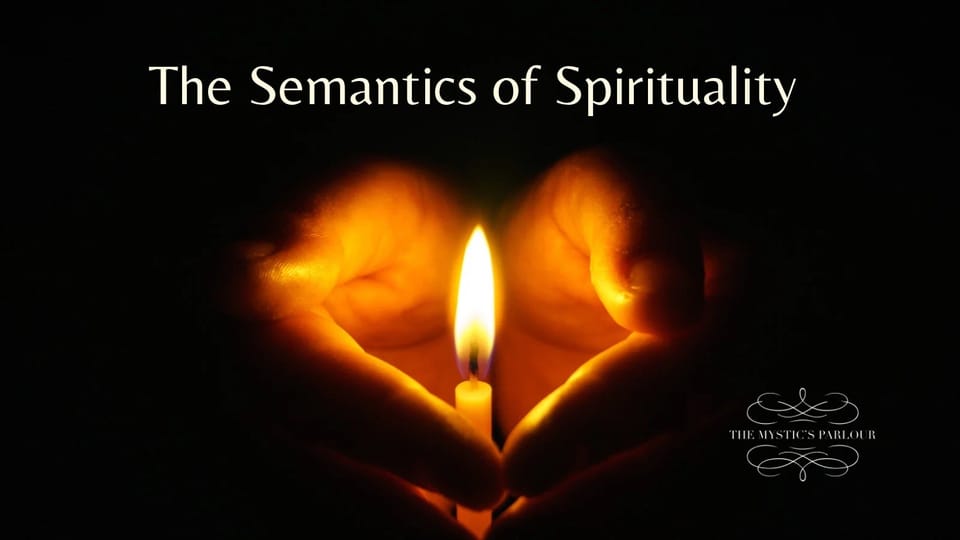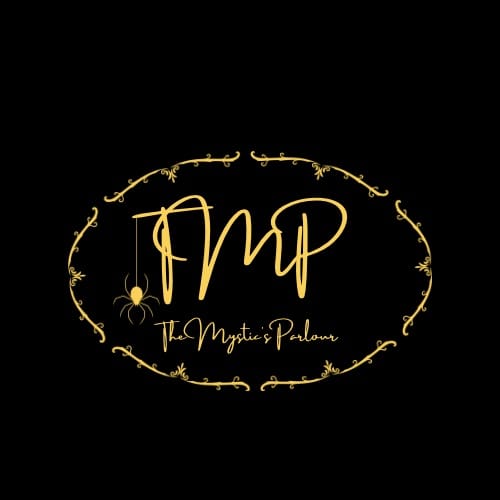The Semantics of Spirituality

Spirituality. Ask five people what spirituality means to them, get five different answers. Possibly very different.
I have had an almost lifelong aversion to certain spiritual terminology. God (and god). The divine. The angels and saints. Sacred. Celestial is fine, celestial beings, not so much. Aliens are alright but I don’t agree with the theory that they are angels. It’s simple. It’s also complicated. I do love a good paradox.
My lifelong rejection of the sacred and the divine left me in something of a spiritual quandary. I an able to feel the meanings but will not use the words. The concept of worship is an issue for me, as is religion overall. I practice Daoism as a philosophy, not religion. I’m a witch in practice, sans the devotion to the gods and goddesses of the pagan faith. I’m not Christian, pagan, heathen, or atheist. I’m as spiritually agnostic as it gets, but at the same time, I embrace the spiritual.
I often describe myself as a mystic. That’s not quite right, I’m a student of mysticism. Maybe, beginner’s mind definitely applies here.
After a bit of effort, I’m now able to get past my antipathy of the word sacred. First by feeling the sacred energy of physical places, then by making the connection that the energy creating the sacred space comes from my connection to the divine energy of the space. Guess I’m making progress with the concept of divine as well. Ironic, for someone who regularly practices divination.
Whether it‘s my lack of belief, faith, or conviction, the mystical epiphany I’ve been chasing all these years is still just out of my grasp. I believe in things that I don’t fully understand so I suspect it’s because I’ve been looking for an easy fix, even though it you ask me, I’ll talk for hours about ‘doing the work’. I do the work, just not deeply enough. I focus on intuitive feelings, and not enough on analysis. I rely on intrinsic knowledge, and not enough on study. Brevity, and not enough deep contemplation.
I’m making the effort to change my approach. With a little direction (divine intervention?), my path has taken me to the poetry and prose of the Spanish Mystics. They were mostly saints, but I’m okay with that. The saints were one part of the Church that always interested me. Like a lot of the Catholic doctrine, I didn’t know what I didn’t know, and I didn’t know anything about a lot of the saints. Those eight years of Catholic school really were wasted on me. I keep thinking ‘they didn’t teach us that’, but I realize that as an adult, the pursuit of knowledge is on me.
This recent journey began with the heartbreaking beauty of the poem Dark Night of the Soul, by John of the Cross. It’s not exactly what I thought, it’s not exactly what you think, or maybe it is. This led me to St Teresa of Avila, then to T.S. Eliot, who was inspired by John of the Cross. I’m intrigued by Julian of Norwich, although she is venerated but not a saint, and what it was like to be an anchoress, and how similar that is to Daoist mountain monks… except for the cell, but maybe the cell had nothing to do with being an actual cell. There’s a lot of Dao in all of this, now that I know where to look.
I think you get the picture. This isn’t just a rabbit hole, it’s an entire underground warren. I’m not sure where it’s going but I’m starting with The Four Quartets, by T.S. Eliot. It’s more philosophical and less religious in tone and I know how far to test my limits.
Am I looking to bridge the gulf between Daoism and Christianity? Not so much as I am intent on connecting the dots and finding common ground for a better understanding. I want to find the places where they meet, then explore where the differences veer off. I’m seeking connection, understanding, and respect. The transcendentals: truth, unity, beauty, and goodness seem like a good place to start.
As is true for me with Daoism, I’m drawn to the mystical, meditative, and contemplative practices of Catholicism, if not Catholicism as a belief practice. If there’s such thing as philosophical Catholicism, sign me up.
If “they” would have taught more about that during my Catholic school upbringing, I may not have left the church. Eh, that’s not true. I was given enough information to seek it on my own, which was entirely the point.
Watch this space as I may possibly delve into my spiritual theory on death, the afterlife, heaven, reincarnation, and such in future columns. I feel this is not far behind.
For all of you out there walking your authentic spiritual path, whichever that may be, thank you. Whether or not you realize, you inspire me with your words and your actions. I’ll leave you with this:
LITTLE GIDDING
(No. 4 of 'Four Quartets')
T.S. Eliot
III
There are three conditions which often look alike
Yet differ completely, flourish in the same hedgerow:
Attachment to self and to things and to persons, detachment
From self and from things and from persons; and, growing between them, indifference
Which resembles the others as death resembles life,
Being between two lives—unflowering, between
The live and the dead nettle. This is the use of memory:
For liberation—not less of love but expanding
Of love beyond desire, and so liberation
From the future as well as the past. Thus, love of a country
Begins as attachment to our own field of action
And comes to find that action of little importance
Though never indifferent. History may be servitude,
History may be freedom. See, now they vanish,
The faces and places, with the self which, as it could, loved them,
To become renewed, transfigured, in another pattern.
If you would like to know more about my ancestral connection work, my Daoist path, or my other offerings such as tarot readings, spiritual guidance and mindset coaching, you can find more detailed information by using the drop-down menu on my website: The Mystic’s Parlour (the-mystics-parlour.ghost.io)
You can also contact me via email at themysticsparlour@gmail.com or on any of my social media channels. And follow along with TABI Tarot on their social media channels as well. https://tabi.org.uk
Your continued support and encouragement are greatly appreciated.
